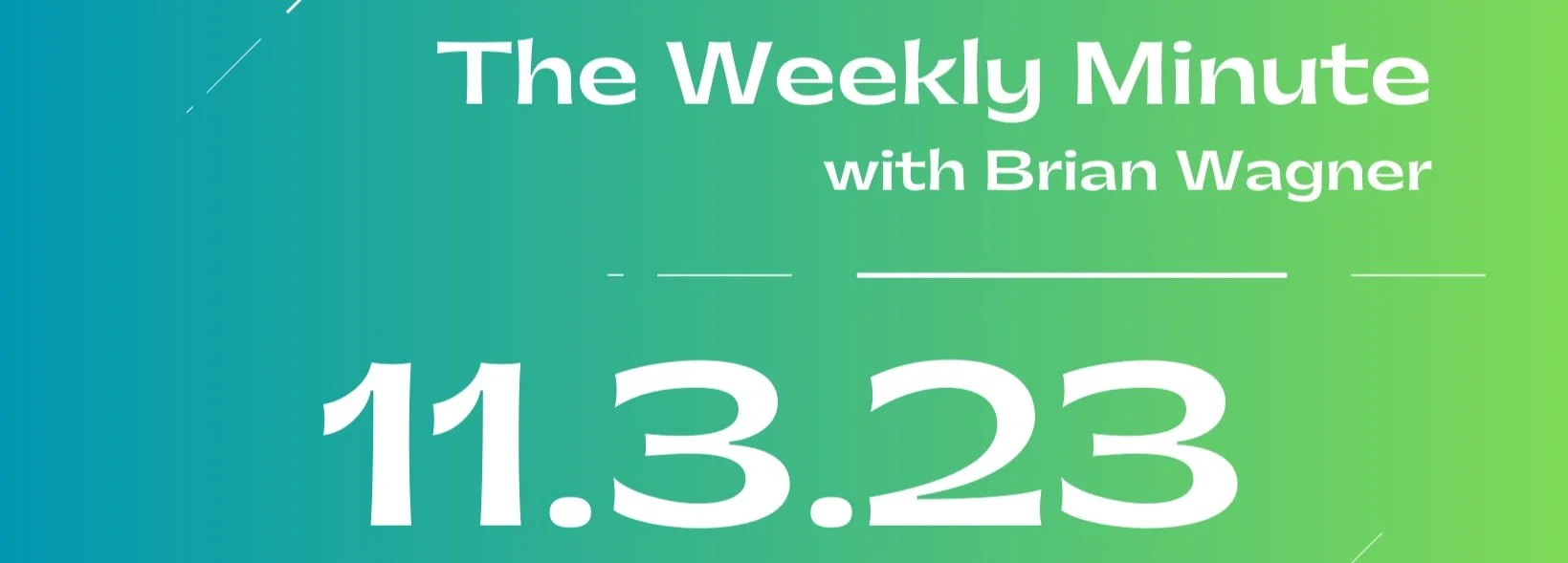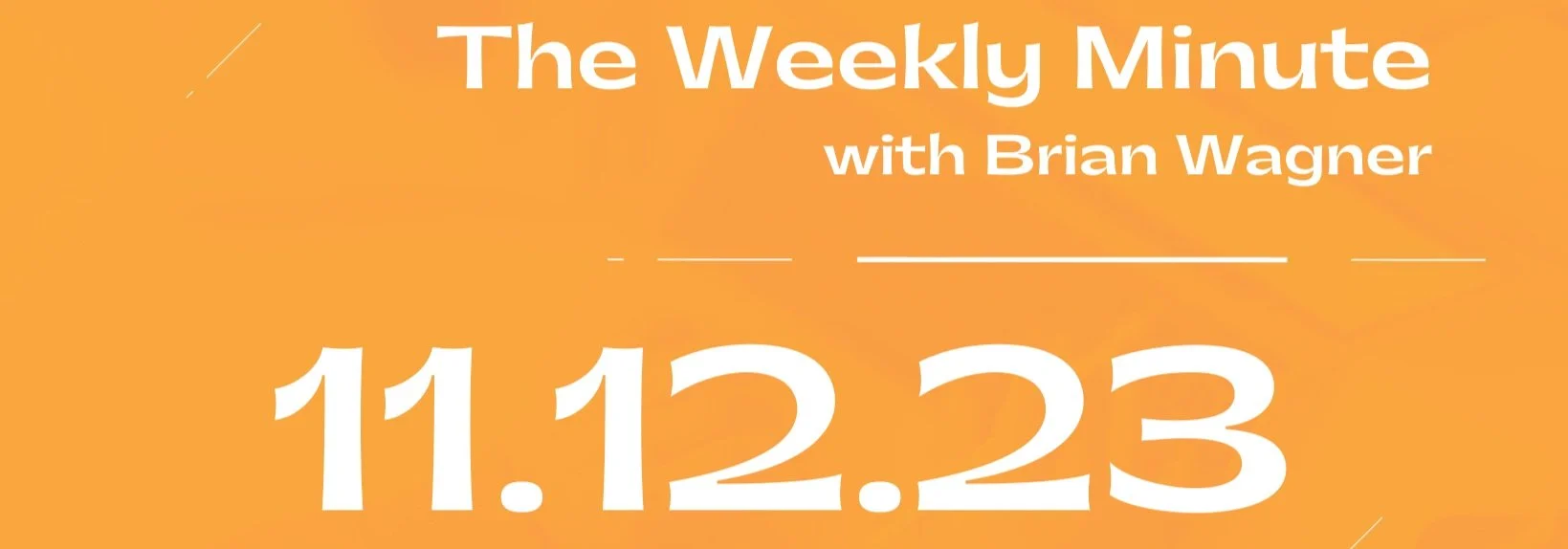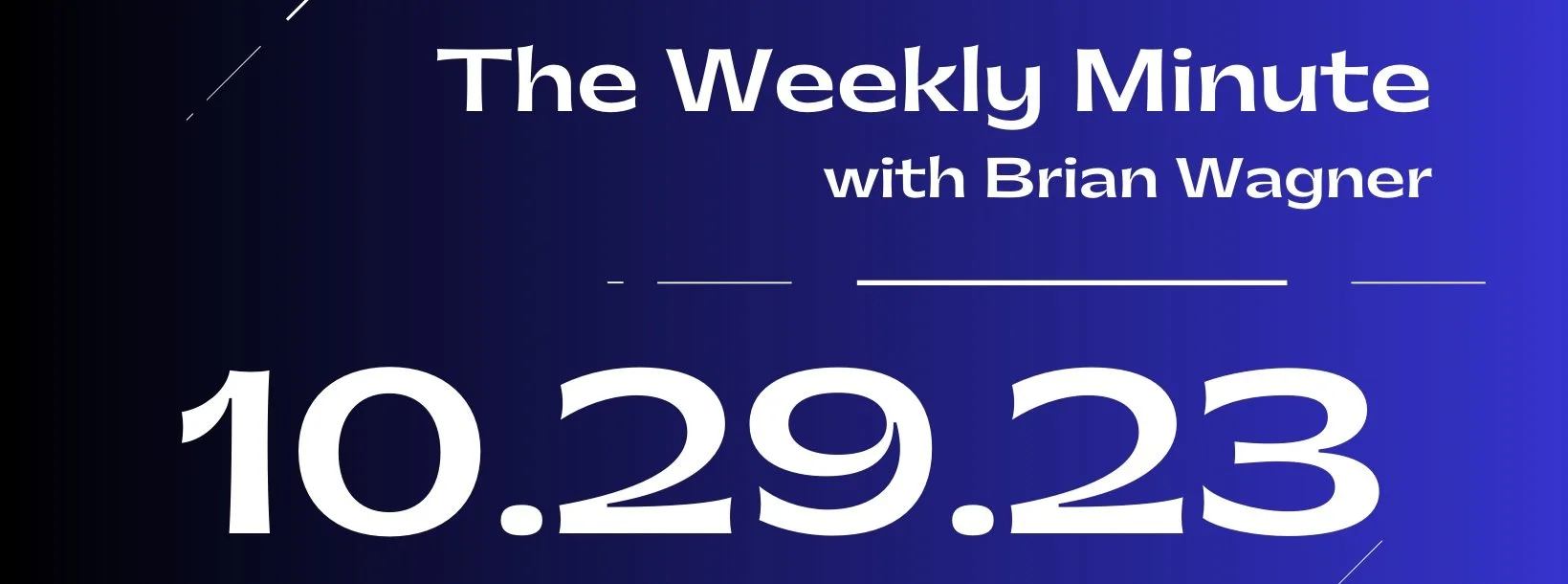The Weekly Minute - November 3, 2023
This is the 52nd straight week I’ve published a blog post! A full year.
I’m proud of that consistency, although I want to invest more time into this and offer up even more analysis/commentary – rather than just aggregate.
Onto this week’s content, I hope you enjoy.
What I Read This Week
How to explain an idea: a mega post (via Mark Pollard)
This is a giant article from Mark on explaining an idea – and within it, Mark covers:
The differences between ideas and thoughts
The types of ideas we encounter in advertising
How strategy and ideas work together and how they’re different
Simple techniques to help you explain an idea
‘Zero consumers’: What they want and why it matters (via McKinsey)
During this time of transition and change, what are the must-dos for consumer companies? The following four actions can kick-start the journey:
Reimagine the omni-channel world
Revamp your offer
Ramp up personalization at scale
Reshape your societal footprint
Shifts in consumer behavior always present challenges—and, of course, new opportunities—for retailers and consumer goods companies. The emergence of the zero consumer should be a catalyst for innovation, propelling the boldest and most agile companies toward their next horizon of growth. Will your company rise to the challenge?
Some Thoughts
Always demand a deadline. A deadline weeds out the extraneous and the ordinary. It prevents you from trying to make it perfect, so you have to make it different. Different is better.
Reading to your children regularly will bond you together and kickstart their imaginations.
The Wonders of Life
Author William Martin on the wonders of ordinary life, with a hat tip to James Clear in his weekly newsletter
“Do not ask your children
to strive for extraordinary lives.
Such striving may seem admirable,
but it is the way of foolishness.
Help them instead to find the wonder
and the marvel of an ordinary life.
Show them the joy of tasting
tomatoes, apples and pears.
Show them how to cry
when pets and people die.
Show them the infinite pleasure
in the touch of a hand.
And make the ordinary come alive for them.
The extraordinary will take care of itself.”Source: The Parent’s Tao Te Ching
One Framework
The OODA Loop
The Observe-Orient-Decide-Act ("OODA") Loop was developed by Colonel John Boyd, a U.S. Air Force fighter pilot and military strategist, as a decision-making tool for use in complex and high-stress situations
Colonel Boyd knew that fighter pilots were constantly encountering high-stakes situations with life or death consequences, and they needed a system for decision-making that would withstand the pressure and allow for continuous, context-driven improvements.
The OODA loop is an iterative process of four key steps:
Observe: Observe the environment and gather information about the situation. Actively seek out information from various sources, such as data, reports, and feedback from stakeholders. It is essential to collect as much information as possible to gain a comprehensive understanding of the situation.
Orient: Orient oneself to the situation. Analyze the information gathered in the observation phase and assess how it relates to the current situation. The orient phase allows for a deeper understanding of the situation and helps to identify patterns or trends.
Decide: Decide on a course of action based on the information gathered and the analysis conducted in the previous two steps. This decision-making process should take into account the potential risks, consequences, and outcomes of each option. It is important to consider different scenarios and their potential outcomes to select the most appropriate course of action.
Act: Act on the decision made in the previous step. This involves executing the chosen course of action and monitoring its progress. It's crucial to remain flexible and adaptable during this phase, as unforeseen challenges often arise, requiring a reassessment of the situation and a potential adjustment of the course of action.
The OODA loop is intended to be iterative, meaning that the results of each step feed back into the beginning of the loop, informing subsequent iterations.


